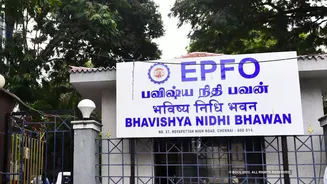Fee Hike Explained
During the Trump administration, a considerable change was made to the H-1B visa program, with a fee hike of $100,000. This increase was primarily aimed
at companies that heavily relied on H-1B visas, and it became a significant financial burden, particularly for IT firms based in India. This fee was imposed on companies seeking to employ foreign workers in specialized occupations, impacting the overall operational costs. The policy change directly increased the expenses associated with hiring and maintaining skilled foreign professionals, forcing businesses to reassess their staffing strategies and financial planning. Many companies then had to navigate the complexities of this added financial constraint while simultaneously trying to remain competitive in the market.
Financial Impact on Firms
For Indian IT companies, the increased fees associated with the H-1B visas meant a substantial rise in operational expenses. These companies, which often employed a significant number of foreign workers due to specialized skill requirements, had to absorb these additional costs. The added financial strain led to several possible consequences. The firms had to rethink their hiring strategies, potentially slowing down recruitment or opting for less experienced candidates. This could affect their ability to compete in a global market. Some companies may have been compelled to re-evaluate their international expansion plans. The increased expenditure directly cut into their budgets, impacting their profitability and overall financial health, ultimately influencing their strategic decisions and ability to invest in innovation and growth.
Impact on IT Workers
The fee hike directly impacted IT professionals, particularly those from India, seeking employment in the United States via the H-1B visa program. The increased costs could make it more difficult for companies to sponsor and employ foreign workers, potentially leading to fewer job opportunities and longer processing times. The rise in fees created uncertainty among skilled professionals who were already facing the challenges of securing and renewing their visas. This was especially relevant for those needing visa extensions, as their employers had to incur further expenses. Such changes affected the career prospects and financial stability of many workers. The shifting policies added stress to employees and may have influenced their decisions to seek opportunities elsewhere or return to their home countries, leading to a significant brain drain.
Policy Changes Explained
The $100,000 fee hike implemented by the Trump administration was not an isolated measure; it was part of a broader shift in immigration policies. These policies focused on tightening restrictions on foreign workers and increasing the costs associated with their employment. This action sent a clear message about the administration's stance on foreign labor, emphasizing a preference for local hires and a reduction in the number of foreign workers in key sectors, especially within the IT industry. The overall goal was to reshape the workforce, which intended to prioritize American workers in the specialized and in-demand roles that were historically filled by H-1B visa holders. This change reflected a larger strategy, aiming to curb the number of foreign workers, reshaping the dynamics of the skilled labor market, and altering the ways companies hired and managed their workforce.
Industry Reactions
The IT industry, particularly Indian IT companies, responded to the fee hike with significant concern and disapproval. Business leaders and industry associations voiced their worries about the increased costs and potential negative effects on their operations. Many companies felt that this measure unfairly targeted them. They argued that it would harm their competitiveness in the global market. Industry experts highlighted that the policy could hinder their ability to attract and retain top talent, as the increased financial burden might discourage some companies from sponsoring workers. This resulted in lobbying efforts and strategic adjustments within companies, including seeking alternative solutions or reassessing their expansion plans to navigate the changing landscape.
Future Implications
The long-term consequences of the fee hike on the H-1B visa program and the IT industry remained a topic of speculation. While the immediate impact was noticeable, the ongoing implications would unfold over time. The changes could lead to shifts in global talent flows, as skilled workers might reconsider their options for international employment. The policies could encourage companies to explore alternative staffing models or invest in automation. The long-term effects on innovation, economic growth, and the competitiveness of the IT sector were significant. These factors would influence the strategic planning of businesses, investment in technology, and the overall dynamics of the global workforce, especially in tech-driven industries and the implications of such shifts.




















